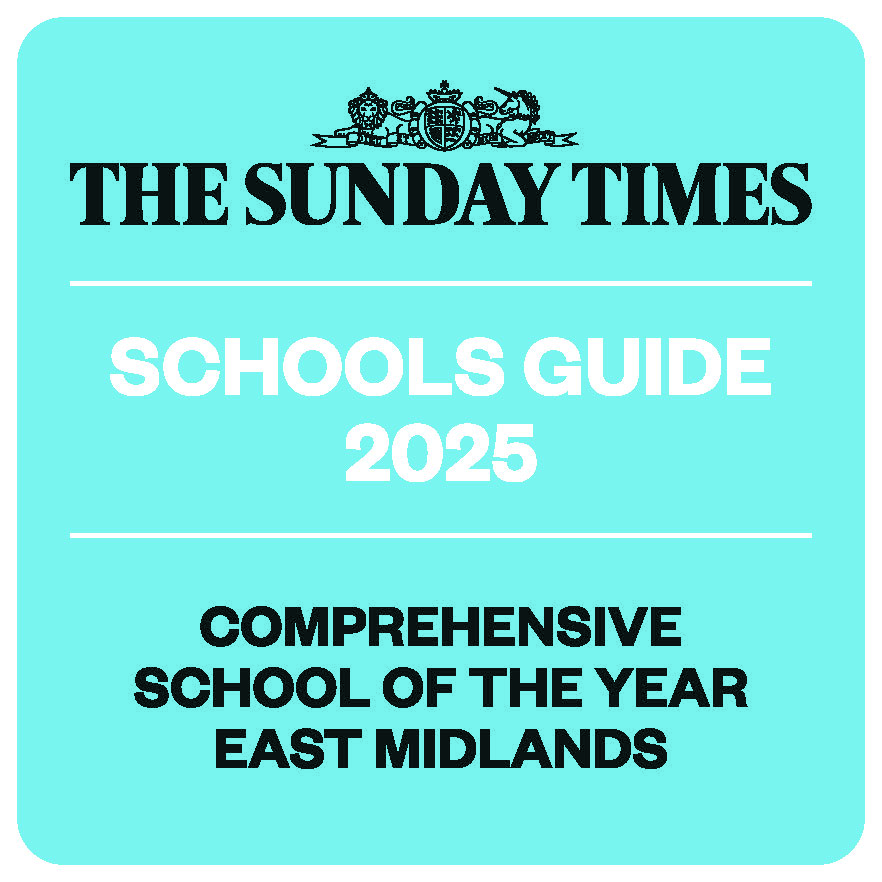Homework
What is the purpose of homework?
Homework is an essential part of our overall delivery of the curriculum – deliberate and well-planned homework tasks make for more motivated students who are more likely to understand the content, develop subject-specific skills and consolidate the core knowledge needed to be successful.
Homework is also intended to encourage students to develop independent study skills, organisational habits, effective time management and self‐discipline – helping to raise attainment levels and further challenge and extend the in-class content.
All students are expected to use homework to consolidate, revisit and reinforce the learning they do in classrooms. At NSB, homework is designed by curriculum teams and teachers to give students the opportunity to complete purposeful and meaningful tasks:
- Revisit and retrieve knowledge
- Check and test understanding
- Apply and practise skills
- Reinforce skills by applying them to new contexts
- Deepen knowledge through further research and wider reading
What does the evidence say about the impact of homework?
Educational research indicates a positive correlation between completing regular homework tasks and student progress and achievement. According to the Education Endowment Fund, carefully designed homework tasks can accelerate a student’s progress by up to 5 months across an academic year.
In particular, homework tasks that are linked explicitly to classroom work and the curriculum tend to be more effective and lead to a greater impact on students’ learning and progress.
What might homework look like?
Homework can take a variety of forms and these will vary according to which approaches suit individual subjects:
- Recall of key definitions/vocabulary
- Use of online platforms such as Sparx Maths, Sparx Science, Seneca or Quizlet to consolidate understanding and apply knowledge to different questions.
- Use resources provided by teachers to prepare for a test or assessment.
- Complete pre-reading ahead of discussion in class e.g. read an article, watch a video, make notes, etc.
- Review key knowledge and concepts from a particular topic.
- Practise and apply the skills learned during the lesson.
- Draft and redraft specific pieces of work.
- Complete research tasks to extend and deepen understanding of topics.
- Prepare a presentation to deliver in lessons.
Regardless of the format, homework is most beneficial when it reinforces and extends classwork and consolidates core knowledge and skills. When setting homework, curriculum teams will be mindful of these guiding principles and use them to set purposeful tasks that students recognise as meaningful and motivational.
Where will homework be set?
All homework tasks are set using assignments on Microsoft Teams. Students and parents will be able to check all tasks that have been set via EduLink One. If you haven’t yet signed up to the EduLink platform, please follow the relevant onboarding links which have been sent to all parents via email.
Students will be given homework in the form of Microsoft Teams ‘assignments’ that they can complete on devices at home or during Homework Club in school.
Where students are set a ‘quiz’ on MS Teams, these will be marked automatically and provide students with an immediate score and indication of possible topics/areas to revisit and revise further to support key knowledge. Teachers can monitor the answers for all students and determine if additional explanations are needed in class to secure understanding.
How long will my child have to complete their homework?
Students will always have a minimum of 1 week to complete their homework. In some cases, and for certain subjects where homework is set every fortnight, students may have longer.
Students and parents can check when homework tasks are due via EduLink One.
Where can I access the homework timetable for my child?
The individual timetables for students in Key Stage 3 can be accessed on the website at the bottom of this page and are also available in the Homework Policy:
Please see the Homework policy link here
What happens if students fail to complete their homework?
Whilst students are fully supported to complete homework, there is also a consequence for non-completion.
In line with the School Behaviour Policy, if a student fails to submit 1 piece of homework, this is recorded on the Behaviour Platform as a Low-Level incident with a curriculum-based sanction as determined by the teacher e.g. break detention/returning to complete the work at lunch/community service/additional homework set to be completed the following day.
A persistent lack of homework (consecutive homework missed or recurring lack of homework) constitutes a Mid-Level incident. All Mid-Level incidents are reported on the Behaviour Platform and sanctioned with an SLT Lunchtime detention. In line with the Behaviour Policy, persistent lack of homework is re-set to zero after an SLT Lunchtime detention is issued.
Where a Mid-Level incident occurs due to persistent lack of homework, the relevant subject teacher will contact home to discuss their concerns, explore potential barriers and seek to offer additional support where possible.
How do teachers report on homework during the year?
When students receive their reports throughout the year, they will receive a Homework grade for each individual subject:
| 1 | Outstanding | All homework tasks are completed on time and to a consistently high standard that is reflective of the student producing homework equal to or above their aspirational target (TAG). Homework tasks demonstrate the student’s ambitious commitment to academic excellence. |
| 2 | Good | All homework tasks are completed on time and to the appropriate standard reflective of the student producing homework at least equal to their minimum target (MAG). |
| 3 | Requires Improvement | Some homework tasks are incomplete and/or missing. The quality of homework tasks is inconsistent and reflects work that is below the student’s minimum target and expected standard. |
| 4 | Cause for Concern | Homework is frequently incomplete and/or missing and leading to persistent gaps in knowledge and skills. |
If a student receives a Grade 3 or lower, parents should already be aware of these concerns through conversations with individual teachers. A Grade 3 or lower will be in response to Mid-Level incidents of persistent non-completion.
How can I support my child with their homework?
As students move through their secondary education, increasing emphasis is placed upon their ability to be independent and self-disciplined with their study habits. Your role is crucially important in helping to ensure that:
- You show an interest in your child’s learning and emphasise the value and importance of regular homework.
- Your child organises their time effectively to manage their homework.
- Your child doesn’t spend unnecessary and excess time completing homework tasks that may have a negative impact on their mental health and well-being.
- Where possible, you help to provide your child with a suitable quiet space to complete their homework. Where this is challenging, you support your child to attend the Homework Club at school.
- Homework tasks are completed by the due date.
If your child needs help, remind them that they can seek out support from their subject teacher or form tutor at an appropriate time before the homework is due.
Many tasks will require students to review, revise and revisit their learning, often using ‘knowledge quizzes’ to check their understanding and retention. It is very helpful to quiz your child on their learning on a regular basis, especially in those subjects that they find more challenging. The simple act of recalling a topic will support their ability to use and apply that knowledge in the future.
















